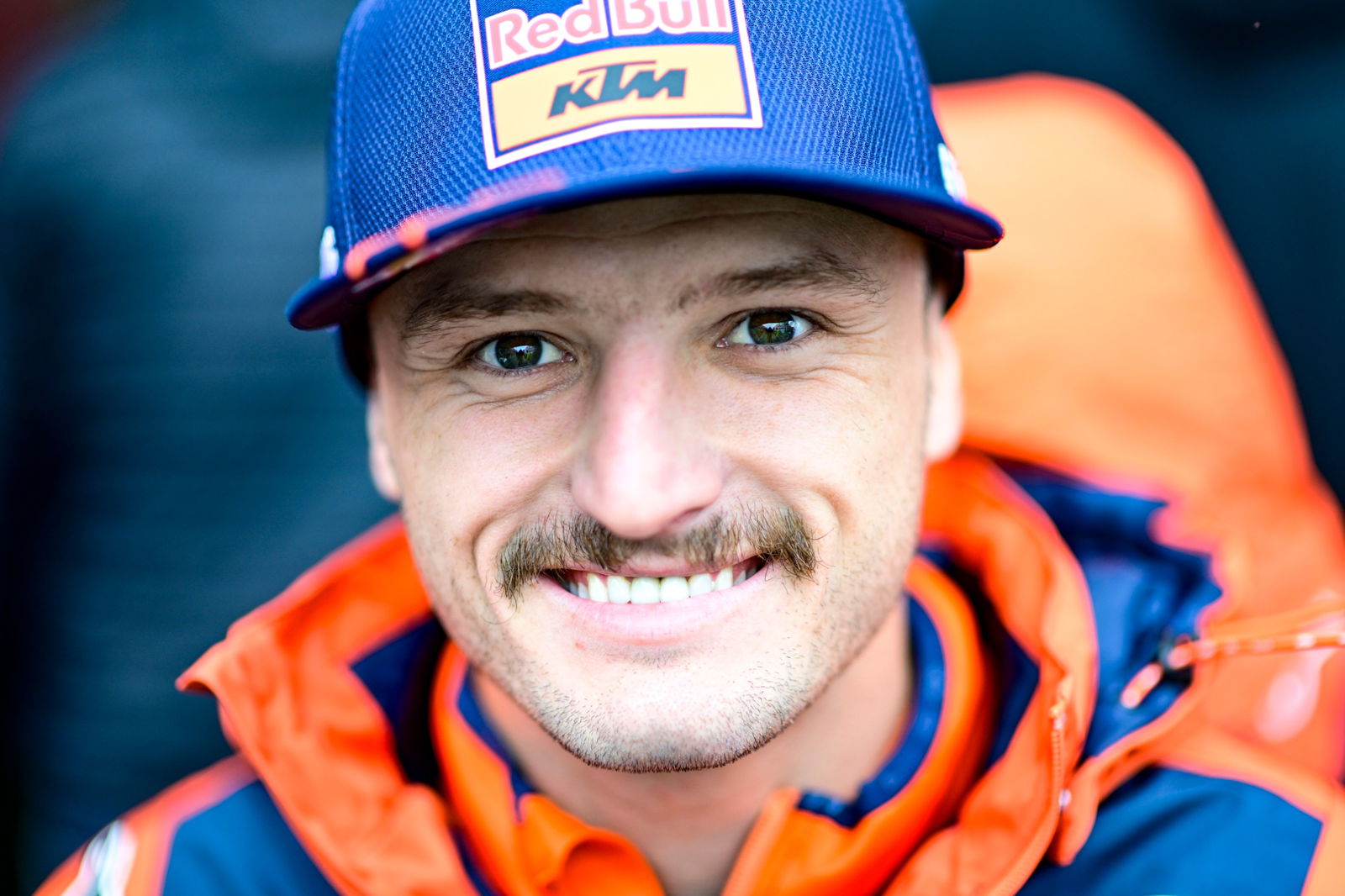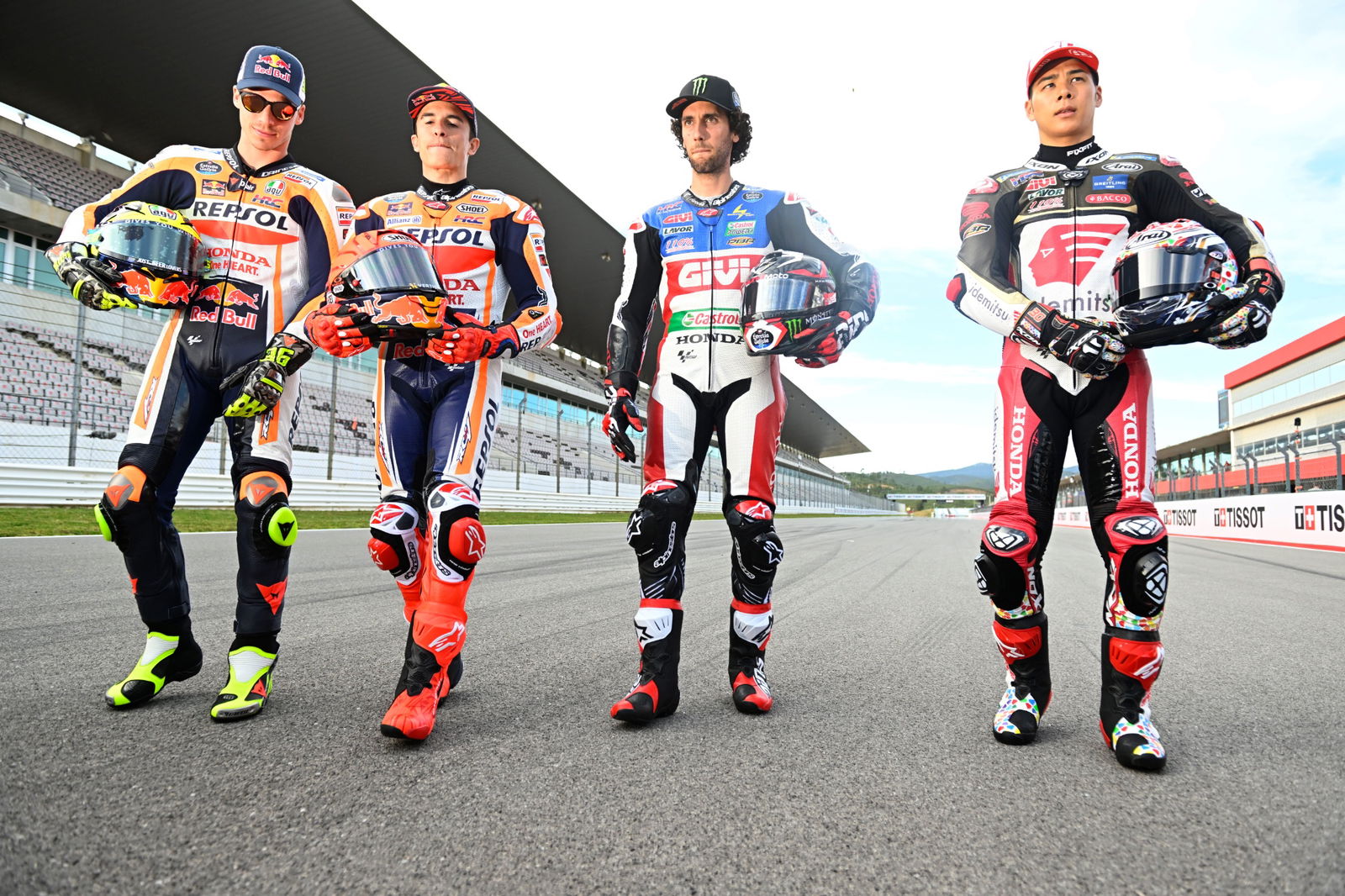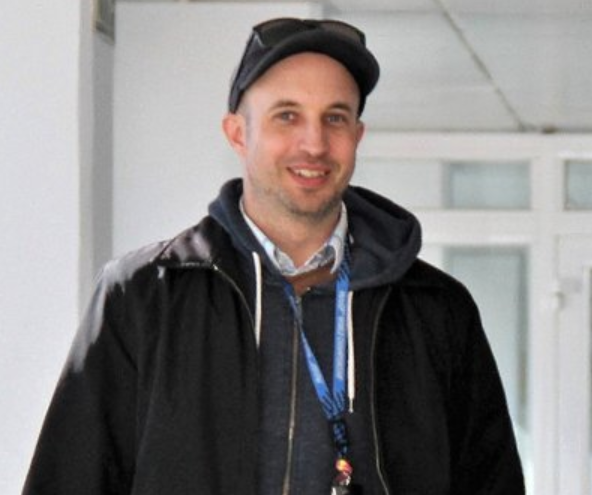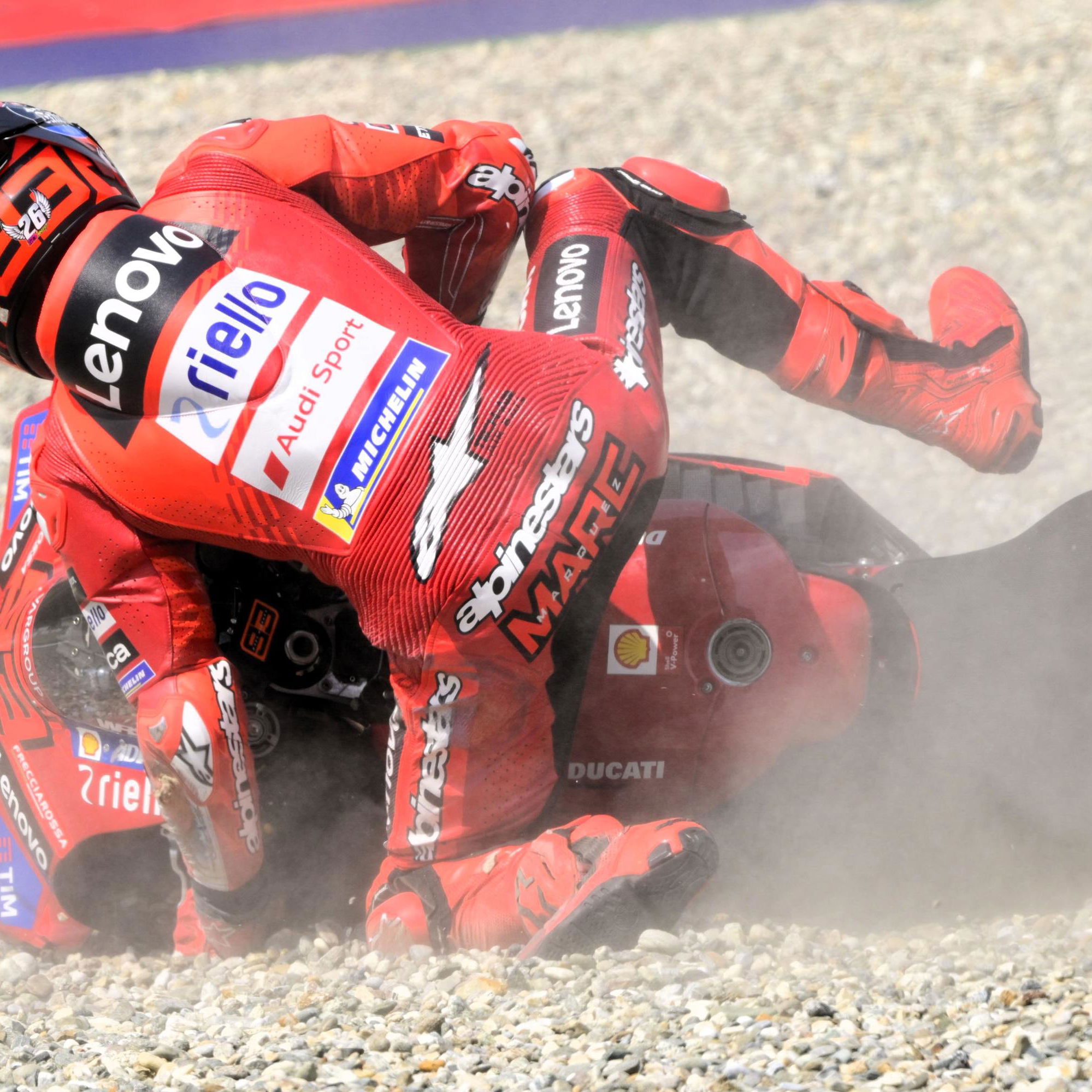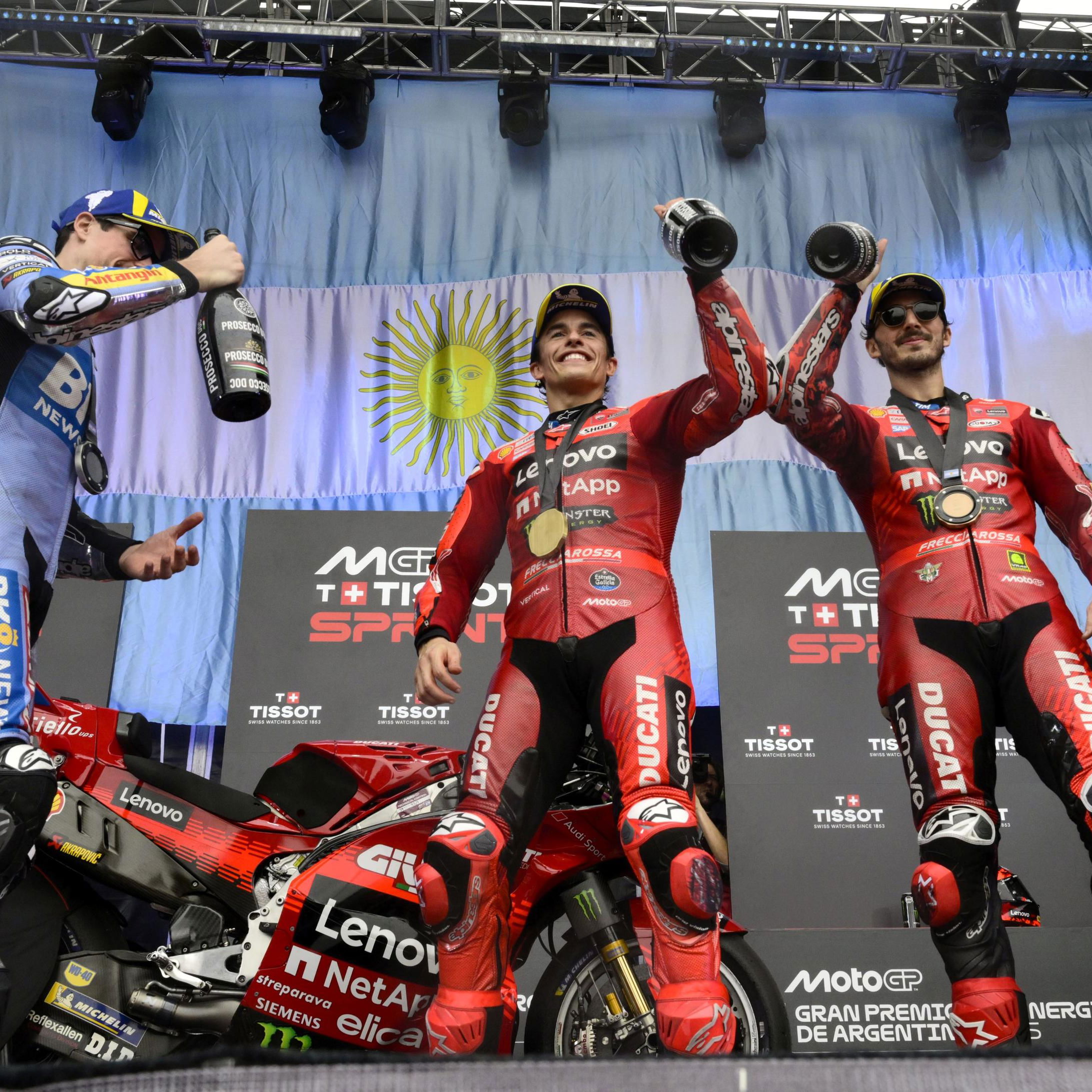MotoGP: Marc Marquez: I agree with the tyre pressure rule, it’s for safety

Some riders have expressed concerns about the effect of higher starting pressures, needed to avoid the risk of being under the official limit for too long, should they become caught in hot and dirty air behind another bike.
But Marquez backs the stricter new system, on safety grounds, which initially requires that a minimum of 1.88 bar (front) and 1.68 bar (rear) is achieved for at least 30% of a Sprint race and 50% of a Grand Prix distance.
"With the front tyre, it's true I feel a difference if we go with a lot of pressure, a lot of locking. But I [also] don't like to have low pressure on the front," Marquez said.
- Jack Miller: ‘Pretty cool’ to silence some critics, ‘now or never’ to join KTM
- Jack Miller: Pecco’s era, but 2023 MotoGP title not under Ducati’s control
- Joan Mir ‘didn't speak with Yamaha, believes it can work with Honda’
On the loss of front grip as pressure rises behind other bikes, the eight-time world champion added:
“Yeah, but I won races in 2019 with 2.1 and 2.2 bar. The thing is we have the front tyre pressure on the dashboard, and if it's going over 2.1, you have an alarm, and you know you will have more locking.
“There are many discussions [about the new real-time system] but in the end, if the tyre manufacturer says it's for safety, we need to follow that rule. We need to forget a bit about the performance: If it's locking, brake a bit earlier, and then it will not lock.
“Of course, I'm one of these guys that wants performance on the bike, but if the tyre manufacturer says it's dangerous, the tyre can explode, we need to change something. And I agree with the rule.”
Currently, any riders failing to meet the minimum pressure will receive a warning for their first offence then time penalties of 3s, 6s and 12s for subsequent breaches.
Once teams have further experience with ‘real world’ tyre pressure variations, the penalties are set to be increased to disqualification from a race or cancellation of a fast lap.
“It's true that if a rider is disqualified, it's not the best for the championship but then the manufacturers will start to increase the pressures,” Marquez said.
The cool Silverstone weather and flowing nature of the British track meant rising tyre pressure was not a significant issue for most riders, although Johann Zarco did think it hindered his race.
However, this weekend’s Austrian Grand Prix, held at the stop-go Red Bull Ring. Where temperatures are forecast to reach 30-degrees, could be a bigger test.
